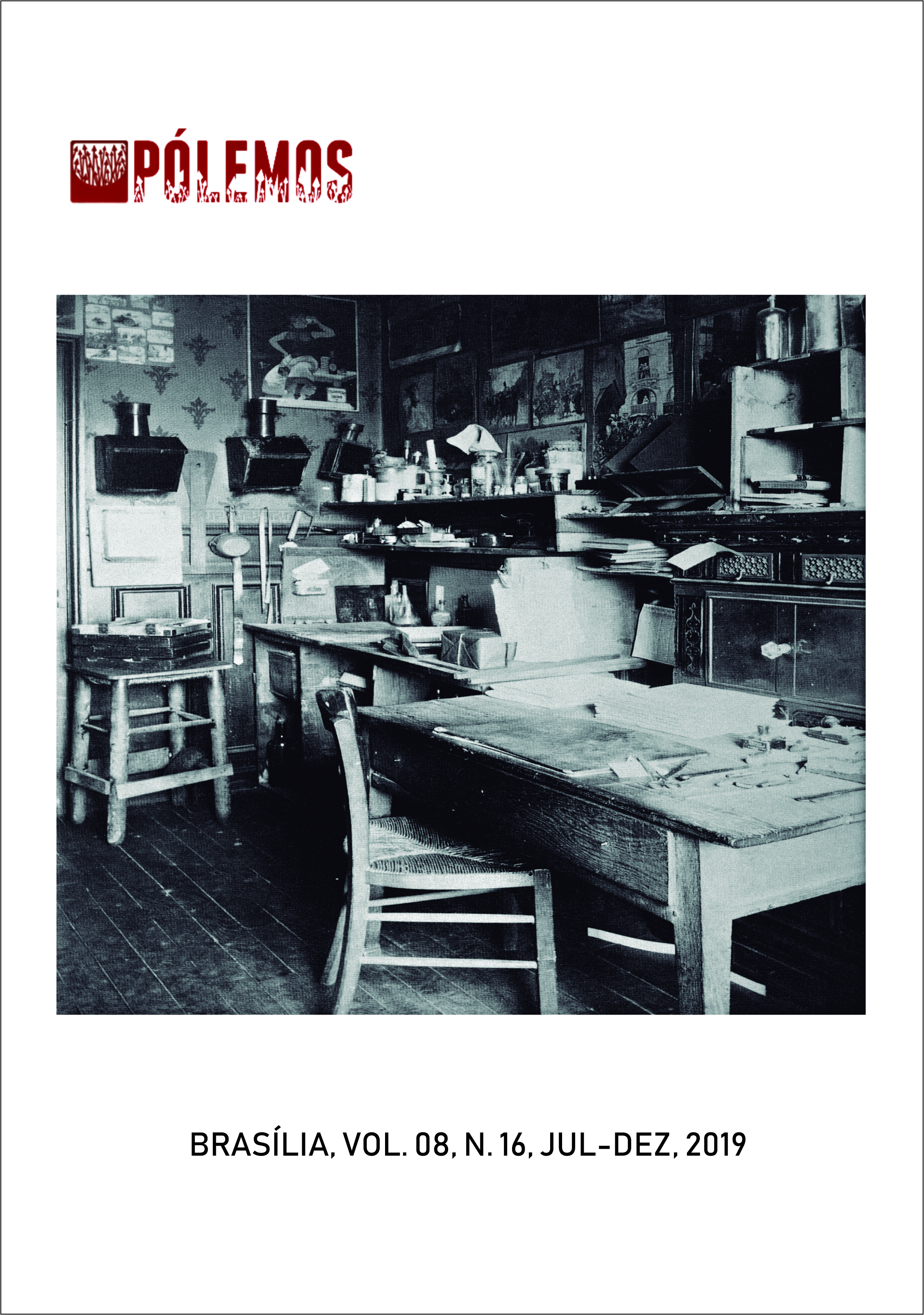DEONTIC LOGIC, MORAL DILEMMAS AND CONTRADICTION
an introduction to the discussion on formalization of moral dilemmas in deontic logic
DOI:
https://doi.org/10.26512/pl.v8i16.23772Keywords:
Ethics. Logic. Moral dilemmas. Deontic logic.Abstract
With the development of non-classical logics, new ways of representing a discourse and analyzing it have emerged. Deontic logic was founded with the purpose of analyzing the ethical discourse. Moral dilemmas are a special case in ethics as the discussion of their existence or not affects the philosophical view on how normative ethics should deal with its principles and whether they should permit the appearence of moral dilemas (MARCUS, 1980, p. 121). In this work we investigated if the discussion of moral dilemmas can interfere in the different foundations of existing deontic logic systems. The analysis begins with a brief presentation of deontic logic and then includes the favorable and contrary positions to the moral dilemas (LEMMON, 1962, p. 139 and CONEE, 1982, p. 87). Lastly, it was verified if there is a compromise between the justification of the existence of the moral dilemmas and the axioms assumed in a deontic system. It is concluded that there is some kind of a compromise between the defense of the moral dilemmas and the logical presuppositions assumed in any deontic systems.
Downloads
References
AMARAL, Juliana de Paula Ferraz do. Representação de dilemas morais em lógica deôntica. Florianópolis. 89. Dissertação em Filosofia. Universidade Federal de Santa Catarina. 2012.
CASTAÑEDA, Hector-Neri. Thinking and Doing: The Philosophical Foundations of Institutions. Dordrecht: D. Reidel Publishing Company, 1975.
CONEE, Earl. Against moral dilemmas. The Philosophical Review, v. 91, n. 1, p. 87-97, 1982.
CRUZ, A. M. P. Lógica deôntica paraconsistente: paradoxos e dilemas. Natal: Editora da UFRN, Brazil, 2005.
DA COSTA, Newton CA; CARNIELLI, Walter A. On paraconsistent deontic logic. Philosophia, v. 16, n. 3-4, p. 293-305, 1986.
FOOT, Philippa (1967). The problem of abortion and the doctrine of double effect. Oxford Review, 5, 5-15.
FRANÇA, Inacia Sátiro Xavier de; BAPTISTA, Rosilene Santos; BRITO, Virgínia Rosana de Sousa. Ethical dilemmas in blood transfusion in Jehovah's Witnesses: a legal-bioethical analysis. Acta Paulista de Enfermagem, v. 21, n. 3, p. 498-503, 2008.
GOBLE, Lou. A logic for deontic dilemmas. Journal of Applied Logic, v. 3, n. 3-4, p. 461-483, 2005.
HILPINEN, Risto. Deontic Logic: Introductory and Systematic Readings. Holanda: D. Reidel, 1981.
LEMMON, Edward John. Moral dilemmas. The philosophical review, v. 71, n. 2, p. 139-158, 1962.
LOKHORST, Gert-Jan C. et al. Ernst Mally's Deontik (1926). Notre Dame Journal of Formal Logic, v. 40, n. 2, p. 273-282, 1999.
MARCUS, Ruth Barcan. Moral dilemmas and consistency. The Journal of Philosophy, v. 77, n. 3, p. 121-136, 1980.
MERLUSSI, Pedro. Há dilemas morais?. ethic@ - An international Journal for Moral Philosophy, v. 12, n. 2, p. 207-226, 2013.
SERBENA, Cesar Antonio; CELLA, José Renato Gaziero. Lógica deôntica paraconsistente e hard cases. 2010.
SILVA, Ricardo Tavares da. Paradoxos da lógica deôntica: Indícios de um equívoco. Kriterion: Revista de Filosofia, v. 58, n. 138, p. 673-690, 2017.
TESTA, Rafael Rodrigues. Dilemas deônticos: Uma abordagem baseada em relações de preferência. Campinas. 75. Dissertação em Filosofia. Universidade Estadual de Campinas. 2008.
VON WRIGHT, Georg Henrik. Deontic logic. Mind, v. 60, n. 237, p. 1-15, 1951.
WILLIAMS, Bernard AO; ATKINSON, W. F. Symposium: Ethical Consistency. Proceedings of the Aristotelian Society, Supplementary Volumes, p. 103-138, 1965.
Downloads
Published
How to Cite
Issue
Section
License
Copyright (c) 2019 PÓLEMOS ”“ Revista de Estudantes de Filosofia da Universidade de Brasília

This work is licensed under a Creative Commons Attribution-NonCommercial-NoDerivatives 4.0 International License.
Todos os trabalhos que forem aceitos para publicação, após o devido processo avaliativo, serão publicados sob uma licença Creative Commons, na modalidade Attribution-NonCommercial-NoDerivatives 4.0 International Public License (CC BY-NC-ND 4.0). Esta licença permite que qualquer pessoa copie e distribua a obra total e derivadas criadas a partir dela, desde que seja dado crédito (atribuição) ao autor / Ã autora / aos autores / às autoras.


